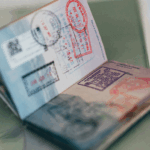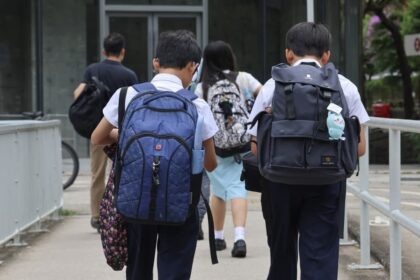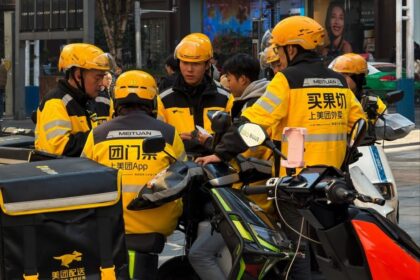Why tipping confusion is rising in Japan
At crowded lunch counters in Tokyo and street side izakaya in Osaka, small piles of coins left on tables have become a new puzzle for staff. Tipping is not customary in Japan, yet a surge of visitors from countries where gratuities are routine has introduced awkward moments at cash registers and dining rooms. Servers often try to return the money, thinking a guest forgot it. Guests often insist it is a thank you. That back and forth captures a cultural clash that is growing in scale.
Japan has welcomed record numbers of visitors in 2024 and 2025. A weak yen has made trips more affordable for long distance travelers from North America and Europe, where tipping in restaurants and bars is common. Tourists who tip out of habit, or because they see a jar near a counter, are bringing a foreign custom into a service economy that prizes seamless hospitality without extra payment.
Local expectations work differently. Many restaurants ask customers to pay at a front register rather than at the table. Service is part of the price of the meal, and good manners are the standard. The national tourism agency advises visitors that tipping is not expected in restaurants, taxis, or hotels. When tips are offered, staff may refuse politely or even chase after a guest to return what they perceive as lost property. Confusion spreads when neither side expects the other to follow the same script.
How restaurants are responding
Some operators are tweaking their playbooks so front line staff are not left to improvise. A Japanese style restaurant chain with more than 20 locations began installing tip boxes near cashier counters in early 2024 after employees reported a jump in attempted gratuities. Each outlet now collects several tens of thousands of yen per month. The company records the cash as miscellaneous income and uses it for employee benefits, a way to keep accounting clear and distribution equitable. The move drew mixed reactions. Guests from tipping cultures welcomed an easy way to say thanks. Some locals feared a back door introduction of a custom they associate with pressure and unequal treatment.
Case study: Gyukatsu Motomura
One beef cutlet chain, Gyukatsu Motomura, placed clear tip boxes labeled in English at most branches. Photos shared online show yen and foreign currency inside. Management framed the change as a practical fix to rising offers of cash on tables and at counters. Routing the money through a box helps with compliance on tax rules and simplifies reporting. Some locations could not add a box because building managers did not allow it, a reminder that even a small acrylic container can trigger policy questions in Japan.
A company official at a chain that added tip boxes explained why the team made the change, stressing how day to day operations looked from the staff perspective.
In Japan, where there is no tipping culture, employees get confused. When the restaurant is busy, it is difficult for staff to respond individually, so we placed the boxes as a solution.
The boxes also sparked debate online. Commenters asked whether money would reach the workers who served them, and whether visible jars would make tourists feel tipping is expected. That tension sits at the center of the dilemma. Operators do not want to create pressure. Staff do not want to turn heartfelt gestures into awkward refusals. Guests want to show appreciation without breaking norms.
Technology brings tipping to checkouts
Digital tools are moving the discussion from tabletop to touchscreen. Tokyo based Dinii, a company that builds mobile ordering systems, introduced a tipping feature in June that lets diners add up to 25 percent to their bill. The software runs in about 900 eateries around Japan, and use is strongest in tourist corridors such as Shinjuku in Tokyo and Namba in Osaka. For managers, prompts inside the checkout flow simplify tax handling and recordkeeping. For visitors used to tipping in their home countries, the option reduces uncertainty over whether or how to leave something extra.
Some owners report morale benefits. Takashi Waki, who runs the Osaka based yakitori chain Yakitori Smith, said the digital option improved the mood on the floor and how staff felt about their work. He then described what that looks like during business hours.
It makes our staff feel motivated and creates a lively atmosphere in our restaurants, which we really appreciate.
Waki said his team uses tip proceeds for staff gatherings. Others adopting digital prompts note that a shared pool of tips can acknowledge the whole crew, from cooks to dishwashers to hosts, without putting the spotlight on a single server. Critics worry that screens that ask for a tip before payment can create guilt tipping, shifting expectations in a country where service has long stood apart from extra pay.
The culture of hospitality and why tipping feels foreign
Japan takes pride in omotenashi, a service ethos built on anticipation, discretion, and respect. The concept starts with the idea that a guest should never need to ask for help. Dining rooms run on quiet coordination and attention to detail. That is one reason gratuities have not been part of daily life. Service is part of the offer, not an add on decided at the end of a meal.
How service charges differ from tips
Japan did have practices that resemble tipping in earlier decades. At inns before World War II, guests sometimes gave a small gift of cash in an envelope known as kokorozuke, a token of gratitude offered with both hands. In the run up to the 1964 Tokyo Olympics, hotels and some ryokan moved to fixed service charges to standardize pricing and speed up operations. Ten percent became common at hotels, and many ryokan used 15 percent. Some high end restaurants still add a service charge today. In North America, by contrast, specific servers are assigned to tables and take home tips as personal income, a structure that links pay directly to guest discretion.
Tourism scholar Yoshiyuki Ishizaki, a professor of tourism marketing at Ritsumeikan University, has studied how service is valued in different countries and how that shapes workplace norms in restaurants and hotels. He notes a basic difference in how customers view the act of paying for service and what that means inside a business.
In Western countries, services are considered something you pay for. In Japan, there is a psychological resistance to putting a price on hospitality, which is understandable.
Ishizaki also points to the limits of treating service as free inside a modern business, especially in a sector facing labor shortages and tight margins.
Labor productivity will not improve if the country continues to think such services are free. Ideally, businesses should include service costs in pricing and ensure profits are properly distributed to employees.
Other countries offer cautionary tales or counter examples. In the United States, standard tips have climbed toward 20 to 25 percent in many cities, and tip prompts now appear on screens for tasks that rarely involved tipping a decade ago. France typically includes service in the bill. Denmark is similar. China long discouraged tipping in daily life, though gratuities appear in some tourism settings. Japan has stood apart, and many residents hope to keep it that way in day to day dining.
What the law and workplace pay reveal
Behind the scenes, tip handling rules and wage data help explain why the issue has become so sensitive. Tips are taxable income in Japan. When guests try to hand cash to a server, restaurants face reporting questions and fairness concerns. Boxes near a register or app based prompts make collection transparent and auditable. Some operators pool proceeds and record them as miscellaneous income, then spend the funds on employee benefits or events. Others set a simple rule for distribution so kitchen and floor staff share the same pool.
The debate overlaps with wages. According to labor ministry data for mid 2024, average monthly pay in the accommodation and food services sector was about 269,500 yen, the lowest of any major industry in the country. Many restaurants report persistent staffing gaps. Supporters of tip prompts argue that even small, unpredictable bonuses help recruitment and morale. Opponents counter that reliance on tips can mask low base pay and could push management to cut hourly wages over time. Few want to import that dynamic into a system built on salaries and posted prices.
Trade groups and local governments are also trying to manage tourist behavior more broadly. Cities such as Kyoto have issued multilingual guides that cover photography etiquette around geisha and maiko, rules for crowded streets, and reminders not to eat while walking in certain districts. Clearer norms for visitors can reduce flashpoints inside restaurants, even if the tipping question remains a special case.
How tourists can show appreciation without tipping
Visitors do not need to tip to be polite in Japan. A warm thank you, a short compliment to the manager, or a positive review online goes a long way. The Japan National Tourism Organization tells travelers that tips are not expected at restaurants, in taxis, or at hotels. If a server returns a tip, accept it with a smile. For those who still want to give something extra, there are settings where it fits the culture. At a ryokan, a small tip for a room attendant is acceptable. Private guides and drivers sometimes receive modest tips from foreign clients. In each case, present clean bills in an envelope and hand it over with both hands. That gesture shows care and avoids putting staff on the spot.
Practical etiquette for diners and guests
- Do not tip at restaurants, cafes, bars, taxis, or hotels unless there is a clearly posted service charge.
- If you see a tip box or a checkout screen with a tip prompt, tipping is optional and not expected.
- At ryokan, a small envelope tip at the end of a stay is acceptable, especially after attentive service.
- Private guides or drivers may accept a modest tip based on your judgment.
- If a tip is refused or returned, accept politely and do not insist.
- Avoid asking staff where to leave a tip. Use a box if present, or offer thanks instead.
- Consider buying a small add on, such as dessert or a drink, to support the business.
- Review local etiquette. Kyoto, for example, publishes tourist manners guides to keep visits smooth. See the city guidance via the Japan National Tourism Organization at this page.
Will tipping take hold in Japan
Early evidence points to a narrow footprint. Tip boxes and app prompts are growing where foreign visitors cluster, such as major stations and shopping districts in Tokyo and Osaka. Chains with many international customers are creating clear channels to accept small gifts while keeping control of tax and distribution. That pattern suggests tipping will remain a tourist facing feature rather than a nationwide standard.
If change comes, it may come through pricing. Some high end restaurants already use a service charge that covers the broader team. More businesses could fold service costs into menu prices and share those gains with staff, which aligns with long standing norms. Digital prompts will likely persist in visitor hotspots. The core of Japanese hospitality, where good service is included and freely given, still carries wide public support.
The Bottom Line
- Tipping is not part of daily life in Japan, and staff often refuse gratuities.
- Record tourist arrivals and a weak yen have brought more visitors from tipping cultures.
- Some chains installed tip boxes to handle rising offers and simplify tax reporting.
- Digital systems such as mobile ordering apps now include optional tip prompts at hundreds of venues.
- One Osaka chain owner said tips through an app boosted staff motivation and funded team events.
- Average pay in the accommodation and food sector is low compared with other industries, adding pressure to the debate.
- Many residents worry tipping could erode omotenashi and create social pressure at the table.
- Japan has a history of service charges at hotels and ryokan, which differ from person to person tips.
- Tourists can show thanks without tipping by offering compliments, writing reviews, or tipping discreetly in proper settings like ryokan.
- Officials and cities are promoting etiquette guides to help visitors match local customs.
- Tipping in Japan is likely to remain limited to tourist areas and optional digital prompts rather than become a nationwide norm.












